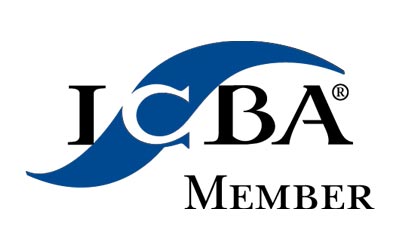How to Retire in North Central WV
Whether you just started your career in West Virginia, are considering moving to our region to be closer to family or take advantage of our low cost of living and scenic beauty, or have been a Mountaineer your whole life, planning for your retirement is an essential part of successful financial management, helping to ensure you lead a happy and worry-free life in your post-work years. But knowing where to start isn’t always easy, and creating a plan that is affordable today and tomorrow can be a complex undertaking.
As trusted financial partners and advisors to members of our community, we wanted to take the time to provide a useful retirement guide to answer your pressing questions from How much do I need to save for retirement? to What are the best ways to reach my retirement goals? Keep reading to learn our best advice for how to retire in North Central WV!
Why Retire in North Central WV?
Maybe you think about the warm shores of Florida’s Gulf Coast, or the lure of the dry heat and sunny skies of the Southwest when you think of ideal places to retire. But many retirees are choosing to forgo the move and remain in their region for a variety of reasons, from taking advantage of a lower cost of living to staying active in the lives of their families and communities. Retiring in West Virginia is full of benefits:
- West Virginia’s low cost of living. Single? You’ll need about $32,000 per year on average to live comfortably in our state. Two-person households only require about $53,000 to live reasonably well. West Virginia has the second lowest cost of living in the United States.
- Growing retirement infrastructure. With a high ratio of independent living communities in places like Fairmont, West Virginia’s retirement infrastructure is growing. In fact, Fairmont is considered one of the top places to retire in WV.
- Quality healthcare. Thanks to WVU, residents of Morgantown can experience quality, affordable healthcare.
Check out our Guide to North Central West Virginia Communities for more great insights into our region.

How Much Money Will You Need in Retirement?
Making sure you have enough income in retirement can be a huge worry for many individuals, as they approach retirement age. Social Security benefits are an important stopgap to prevent poverty in older populations, but for most individuals, it won’t be enough.
How Social Security is calculated is complex, but, as the Center for Budget and Policy Priorities points out, you should expect it to cover only about 37% of your pre-retirement income. So how do you know how much money you’ll need in addition to Social Security benefits? A good place to start is to determine how much income you’ll need in total—which may be quite different from your financial needs at other points in your life.
The amount of income including Social Security and savings you’ll need for retirement depends on a number of factors, including your current lifestyle and expenses, the cost of living where you plan to retire, longevity, and healthcare needs. While several of these items may be difficult to foresee, focusing on predictable costs and providing enough of an economic cushion to weather the unpredictable ones can ensure that you have enough money to comfortably retire.
Let’s take a look at the more predictable costs, to help you get a general idea of what you can expect to face.
Local Cost of Living Averages
Cost of living can vary widely based on lifestyle, and the cost-of-living averages for different areas are just that—averages. In other words, a significant portion of the population will likely spend more or less. However, cost of living averages provide important clues for where your budget will stretch farther, or where you may need to adjust your lifestyle to ensure you stay on budget.
- Morgantown: At 10.2% lower than the national average, two adults will currently need about $53,000 per year to live comfortably.
- Fairmont: Even more affordable than Morgantown, in Fairmont cost of living is nearly 23% lower than the national average, with utilities, transportation, and housing offering the most savings.
- Other Retirement Destinations: Many individuals consider retiring and moving to warmer climates to avoid colder Northern Winters. Unfortunately, your cost of living can be higher in popular retirement destinations. For instance, annual income needs for a household of two are around $60,000 in Orlando and Phoenix.

What Expenses to Watch Out For
When calculating your own expected living costs, you’ll need to pay special attention to the following items, to be sure your savings doesn’t fall short:
Housing
If you already own your home that you plan to stay in, you likely have an idea of your monthly housing costs. Keep in mind, if you pay off your mortgage before retirement, you’ll only need to worry about taxes and insurance costs. Furthermore, if you sell your home for a smaller place, you may be able to eliminate your remaining mortgage, or pocket the equity to increase those retirement savings.
If you don’t already own a home or are looking to relocate to an area of West Virginia in retirement, getting to know home prices by region can help you make an informed choice as you research your mov. As we outline in our recent post, How Much Money Do You Need to Buy House West Virginia, average home costs in our region vary from $58,400 in Mannington to $188,700 in Morgantown. Fairmont and Fairview fall in the middle at $100,300 and $87,300. If you are looking for a newer, maintenance-free home in your retirement years, you may expect to pay more. Keep in mind that property taxes will vary from municipality to municipality. When on a tight budget, use tools like this West Virginia Property Tax Calculator to find the most affordable choices.
Utilities
Utilities will also vary widely, based on the size of your home and its energy-efficiency, as well as the type of heating and cooling systems you have. Because West Virginia’s climate is temperate, experiencing both summer heat and colder winters, a well-insulated home with cost-effective HVAC can make a huge difference. Check out our guide on preparing your West Viriginia home for the winter.
With utilities, size matters—small homes can yield big savings on energy bills, multiplied if that smaller home is also energy efficient. If the cost and effort of maintaining your current larger home seems impractical in retirement, downsizing might give your budget a needed boost.
Taxes
Your income taxes during your working years are often fairly predictable, with few surprises if your employer retains the appropriate tax amounts. But, depending on the types of income and amount of income you receive, your taxes in retirement can fluctuate drastically from year-to-year.
Certain retirement plans, like Roth IRAs, won’t tax your withdrawals. However, income from traditional IRAs and 401Ks will be taxed in retirement. Additionally, if you currently benefit from child tax credits and deductions, once your children age out of dependency, these savings will evaporate. Speaking with an accountant familiar with your financial picture is the best way to create long-term strategies to reduce taxes, while preparing yourself for what to expect.
Entertainment/Discretionary Expenses
In retirement, you may find that without the commute and with fewer individuals at home, some of your everyday expenses are lower than during your working years. However—other costs, like entertainment, travel, and dining out may increase. If you plan to ‘live life to the fullest’ in retirement, be sure to include a healthy budget for these expenses.
Healthcare
Lastly, expect healthcare costs to increase in retirement. Even though Medicare will significantly offset these costs, many large expenses, including long-term care, are not covered by Medicare. USA Today reports that couples should be prepared to set aside $315,000 for medical expenses alone in retirement.
How to Pay for Healthcare in Retirement
If you’re currently working fulltime, you may be accustomed to your employer providing your healthcare and covering a portion of their costs. In previous generations, employers may have contributed to healthcare expenses, but with a few exceptions, upon retirement most individuals are responsible for costs over and above basic Medicare coverage.

How much does Medicare cost?
There are many useful resources available to explain the ins and outs of Medicare and a good place to start is Medicare’s own site: What’s Medicare?. But, simply put, Medicare is a government-sponsored healthcare program for individuals over the age of 65.
Medicare contains multiple components, though all individuals can enroll in Part A at no cost if they or their spouse paid Medicare taxes while working. Part A, also called ‘Hospital Insurance,’ covers 80% of many hospital and inpatient services. Individuals are responsible for paying for premiums for other Medicare parts:
- Part B: ‘Medical Insurance’, $164.90-$560.50 per person, depending on income. Covers 80% of most outpatient costs.
- Part C: ‘Medicare Advantage,’ optional. Offered through private insurance companies to cover gaps in coverage.
- Part D: ‘Prescription Drug Coverage,’ offered through private insurance companies.
Additional costs are based on your coverage choices and plan, as well as your income levels. Lower-income individuals may qualify for Medicaid to cover many of these extra costs—about 29% of West Virginia residents qualify, including two-thirds of our the elderly population.
Health Savings Accounts
If you are enrolled in a High Deductible Health Plan (HDHP), an insurance policy that has a deductible of $1,600 for self-only HDHP coverage and $3,200 for family HDHP coverage (2024 numbers), you can qualify to open a Health Savings Account, or HSA. HSA’s are special savings vehicles that allow you to make pre-tax or tax-deductible contributions—directly from your paycheck, if employee sponsored. You can use your HSA to pay for any qualifying medical expenses, from deductibles to health supplies.
Beyond upfront tax savings, HSAs have additional benefits for individuals of retirement age. While you must start and contribute to your HSA before retirement, once you are retired, you may use the funds for anything—you will just need to pay taxes on anything that isn’t medical-related. While HSAs can’t be used for insurance premiums before retirement, they can be used to pay for Medicare premiums once you reach age 65. HSAs, whose funds can be invested and grow just like an IRA, can function as backup retirement savings.
How to Generate Income for Retirement
Because of the effects of compounding interest, the earlier you start saving, the better. While suggestions for how much to save by each age vary, researchers at one retirement fund management company advise having half your current income saved by age 30, 1.5 to 2.5 times by age 40, 3 to 6 times by age 50, and 7 to 13.5 by age 65.
Because social security will likely not be enough to cover retirement expenses, there are other ways to save and generate retirement income. These range from plans offered by your employer to self-maintained retirement plans and investments. Let’s take a look at the most common alternative sources of retirement income.
Employer Sponsored Retirement Plans
Fulltime (and some part time) employees are often offered access to some form of retirement plan through their job. While pensions starting at age 55 used to be the norm, today most plans are 401(k)s, a tax-deferred investment plan where your employer allows you to make pre-tax contributions from your paycheck, and even matches a portion of your contributions. Some employers also offer Roth 401(k)s, where contributions are not pre-tax, but withdrawals upon retirement won’t be taxed.
There are limits on how much you can contribute, but these tend to be high—$23,000 for 2024—so aim to save as much as you can, or at least as much as your employer will match to maximize your benefits. Ideal for both early and late retirement, with 401(k)s, you can begin withdrawing at age 59 ½, but must make withdrawals starting at age 72.
Self-Employed and Additional Retirement Plan Options
Self-employed? No 401(k) available? Looking for other ways to save? A well-rounded retirement plan uses more than one savings vehicle.
- Simplified Employee Pension (SEP): Offered through some financial institutions and investment brokers, self-employed individuals can contribute as much as 25% of your net earnings from self-employment to these plans.
- One-Participant/Solo 401(k): Even if you can’t get a 401(k) through your employer, you can still get one yourself! Offered through some financial institutions and investment brokers, you can also contribute up to 25% of your income.
- Individual Retirement Account (IRA): Whether you’re self-employed or just want to boost your retirement savings, Individual Retirement Accounts are a popular retirement plan choice, with flexible options to maximize tax savings. The only drawback are the limits: only $7,000 per year for individuals under 50 ($8,000 for 50+). IRAs also are insured by the FDIC for up to $250,000.
Investment Income and Savings
In order to meet retirement needs, many individuals create customized investment and savings plans in addition to retirement accounts.
Investments
Working with a wealth manager to invest your money well in advance of retirement can help you grow your nest egg significantly by the time you reach retirement age. However, keep in mind that investments can carry more risk retirement accounts, especially than FDIC-insured IRAs, so it’s important to work with an experienced financial advisor to be sure that when it comes time to retire, your investment is intact. Many individuals choose to make riskier investments early on in their careers, but adopt a more conservative approach as they get closer to retirement.
Common investments include:
- Individual Stock Market Stocks
- Market Funds: Mutual funds, Index funds, and Exchange-Traded Funds (ETFs)
- Bonds: Government and Corporate
- Annuities: Insurance policies that guarantee income
A financial advisor can help you develop a retirement plan that includes a variety of investments that balance your current and future needs. Whether you are far from retirement and willing to weather unpredictable short-term fluctuations for long-term returns with market investments, or are seeking to minimize risk with products like bonds and insurance annuities, your advisor can help you customize a portfolio to help you reach your retirement goals.
Savings Accounts
Even if you have a variety of investments, you should still set aside savings in an FDIC-insured savings account. Though don’t expect it to grow substantially or generate much retirement income, savings accounts offer the assurance that your money will be there when you need it. And certain savings products offer competitive interest rates.
Common high-yield savings accounts include:
- Money Market Accounts: With tiered interest rates that increase with your balance, Money Market Accounts from First Exchange offer both liquidity and growth.
- Certificates of Deposit (CDs): Certificates of Deposit offer guaranteed returns. While you can’t access your funds until your account matures, you can choose term lengths that meet your needs. To Learn more about CDs, check out our post, What is A Good Time to Invest in CDs?
5 Ways to Prepare for Retirement Now
Is retirement still in the distant future? Here are a few things you can do to make sure it doesn’t sneak up on you.
- Work with a retirement planner and define your goals. When do you hope to retire? What would you like to do during retirement? Will you retire fully at once or ease into retirement, working part time? Do you plan to keep the same standard of living or reduce your expenses?
- Create a budget that leaves room for retirement savings. Once you know your goals, you’ll need to figure out how to achieve them. That starts with finding room in your budget for the savings and investments that you’ll need to retire according to your wishes.
- Automate your retirement contributions to ensure you stay on track. Whether it’s setting up automatic deductions from your paycheck with your employer, arranging automatic transfers from your checking to designated savings accounts, or even creating reminders to contribute, don’t leave your savings up to chance.
- Pay down debt to lower your expenses in retirement. The more debt you carry into retirement, the higher your cost of living will be. While some low-interest debt, like student loan debt and mortgages, may not be especially pressing—or even worth cutting back on retirement savings to pay off, high-interest debt can quickly balloon and eat away into your retirement income.
- Conduct an annual financial checkup. In our post, How to Do a Yearly Financial Checkup, we offer many tips for how to be sure your finances are in the best shape—key to preparing for retirement. From checking your credit score to creating and revisiting long and short-term goals, it’s important to update your financial plans regularly.
First Exchange Can Help You Plan for Retirement
At First Exchange, we strive to help all our customers achieve their life goals, from purchasing their first homes to leading a comfortable retirement. We are proud to partner with Ameriprise Financial to provide robust and personalized wealth management and retirement planning services. Our financial advisors will work with you to learn about your goals, determine how much you’ll need to save for retirement, and create attainable plans to help you live your post-work years to their fullest.
From IRAs to annuities, we can help you find the solutions that work for you, right here in North Central Virginia. Visit a convenient local branch in Fairmont, Fairview, Morgantown, Hundred, Mannington, or White Hall to get started today!










